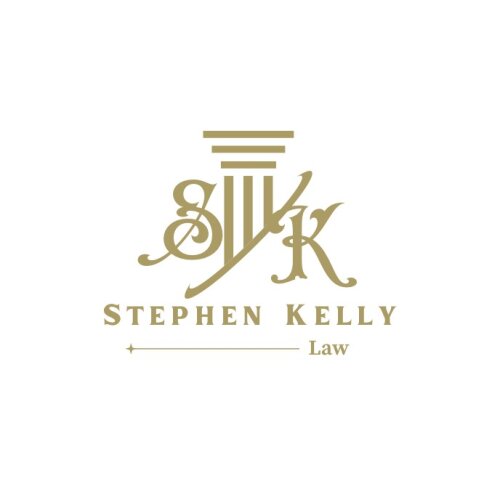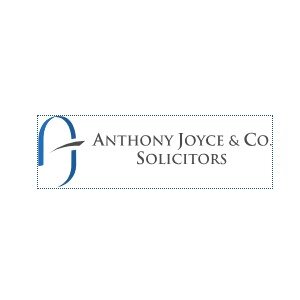Best Mortgage Lawyers in Dublin
Share your needs with us, get contacted by law firms.
Free. Takes 2 min.
Free Guide to Hiring a Real Estate Lawyer
List of the best lawyers in Dublin, Ireland
About Mortgage Law in Dublin, Ireland
Mortgage law in Dublin, Ireland, revolves around the legal framework governing the creation, transfer, and enforcement of mortgages on properties. A mortgage in Dublin typically involves a borrower securing a loan for purchasing property, where the property itself serves as collateral for the loan. The legal processes encompass the agreement terms, interest rates, repayment schedules, and the rights of both the borrower and lender in the event of default. This field of law ensures that all parties adhere to contractual obligations while protecting their rights throughout the mortgage lifecycle.
Why You May Need a Lawyer
Seeking legal assistance in mortgage matters can be essential in various situations:
1. Purchase of Property: Ensuring that the mortgage agreement is fair and compliant with local laws.
2. Mortgage Refinancing: Legal advice on refinancing options and implications.
3. Default on Mortgage Payments: Representation and negotiation to prevent foreclosure.
4. Disputes with Lenders: Resolving conflicts related to mortgage terms or payments.
5. Property Transfers: Ensuring the legal transfer of property ownership involving an existing mortgage.
Legal expertise can safeguard your interests, ensuring all documentation is accurate and any potential issues are addressed proactively.
Local Laws Overview
Mortgage law in Dublin, Ireland, is part of the broader property law structure and adheres to various key regulations:
1. Consumer Protection: Laws such as the Consumer Credit Act safeguard borrowers' rights and interests.
2. Land and Conveyancing Law Reform Act 2009: Governs the processes of creating, transferring, and enforcing mortgages.
3. Financial Regulation: Mortgages are regulated by the Central Bank of Ireland, ensuring lenders comply with financial and consumer protection regulations.
4. Foreclosure Laws: Provide specific procedures and protections for both borrowers and lenders if foreclosure becomes necessary.
Understanding these local laws is crucial for anyone engaging in mortgage transactions in Dublin.
Frequently Asked Questions
1. What is the typical mortgage term in Dublin?
Most mortgages in Dublin have terms ranging from 20 to 35 years, though the exact term depends on the lender and borrower’s circumstances.
2. Can I get a mortgage as a non-resident?
Yes, non-residents can obtain mortgages in Dublin, though the terms and conditions may differ, and a larger deposit is often required.
3. What is the usual deposit required for a mortgage?
Typically, first-time buyers need a minimum deposit of 10%, while second-time buyers may need around 20% of the property’s value.
4. What happens if I cannot make my mortgage payments?
If you miss mortgage payments, the lender may take legal action, which can eventually lead to foreclosure. Early communication with your lender or seeking legal advice can help manage the situation.
5. Are there fixed and variable interest rate options?
Yes, lenders offer both fixed-rate and variable-rate mortgage options, each with different benefits and risks depending on market conditions and personal preference.
6. Can I switch my mortgage provider?
Yes, you can switch mortgage providers to secure better terms or rates. This process involves re-evaluation and may incur certain fees.
7. What legal documents are involved in a mortgage?
Key documents include the mortgage deed, loan agreement, property valuation, proof of income, and identification. A solicitor can help ensure all documents are in order.
8. Are there tax implications when taking a mortgage?
Yes, there may be certain tax benefits and obligations. Consulting with a tax advisor or solicitor can provide clarity based on individual circumstances.
9. What is the role of a solicitor in the mortgage process?
A solicitor ensures the mortgage agreement is legally sound, performs property title checks, handles documentation, and provides advice throughout the transaction.
10. Can I pay off my mortgage early?
Many lenders allow early repayment of mortgages, though there may be early repayment charges. Reviewing the terms of your mortgage agreement is important to understand any penalties involved.
Additional Resources
Here are some valuable resources and organizations for those seeking legal advice on mortgages in Dublin:
1. The Central Bank of Ireland: Oversees financial institutions and provides guidelines on mortgage regulations.
2. The Law Society of Ireland: Offers guidance and directories for finding qualified solicitors in Dublin.
3. Citizens Information: Provides comprehensive information and advice on mortgages and financial regulations.
4. Local Solicitors: Engaging local solicitors with expertise in property law can provide personalized legal assistance.
Next Steps
If you need legal assistance with a mortgage in Dublin, consider the following steps:
1. Research: Educate yourself on the basics of mortgage laws and your specific needs.
2. Consult: Reach out to qualified solicitors specializing in mortgage and property law for an initial consultation.
3. Gather Documents: Prepare all necessary documentation such as identification, financial statements, and property details.
4. Clarify Goals: Be clear about your objectives, whether it's purchasing property, refinancing, or resolving disputes.
By taking these steps, you ensure a well-informed and legally sound approach to handling your mortgage matters in Dublin, Ireland.
Lawzana helps you find the best lawyers and law firms in Dublin through a curated and pre-screened list of qualified legal professionals. Our platform offers rankings and detailed profiles of attorneys and law firms, allowing you to compare based on practice areas, including Mortgage, experience, and client feedback.
Each profile includes a description of the firm's areas of practice, client reviews, team members and partners, year of establishment, spoken languages, office locations, contact information, social media presence, and any published articles or resources. Most firms on our platform speak English and are experienced in both local and international legal matters.
Get a quote from top-rated law firms in Dublin, Ireland — quickly, securely, and without unnecessary hassle.
Disclaimer:
The information provided on this page is for general informational purposes only and does not constitute legal advice. While we strive to ensure the accuracy and relevance of the content, legal information may change over time, and interpretations of the law can vary. You should always consult with a qualified legal professional for advice specific to your situation.
We disclaim all liability for actions taken or not taken based on the content of this page. If you believe any information is incorrect or outdated, please contact us, and we will review and update it where appropriate.















